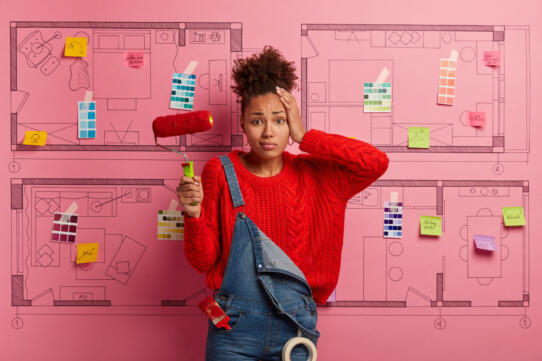Creating the illusion of more space in a room can be as simple as selecting the right paint. Learning how to make a room look bigger with paint involves choosing specific colors and techniques for your walls, ceilings, and trim, which can dramatically affect how spacious your room feels.
This guide will walk you through practical and creative ways to use paint to visually enlarge your living areas, transforming cramped spaces into airy environments without the need for extensive renovations.
Choose Light and Neutral Colors
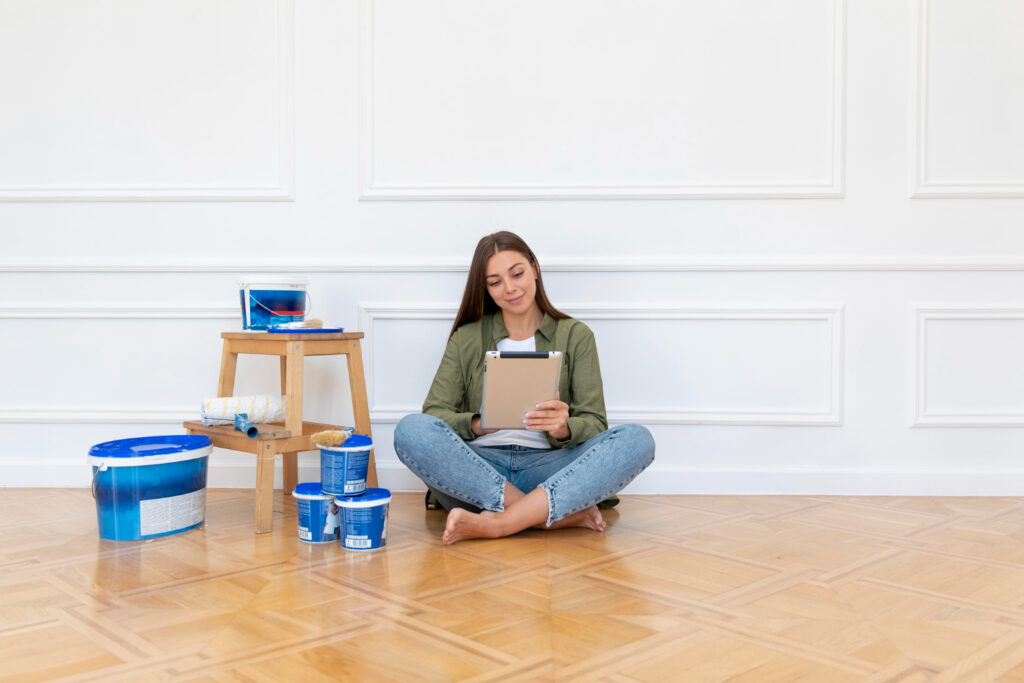
Light colors are known for making a room look larger and more open. Light and neutral shades like white, beige, light gray, and pastels reflect more light than darker colors, which helps to make a space feel more expansive. Painting walls in soft tones creates a light, airy feel, making the boundaries of the room seem less constrictive. Additionally, light colors serve as a neutral backdrop, allowing for versatile furniture and decor choices.
Paint the Ceiling a Light Color
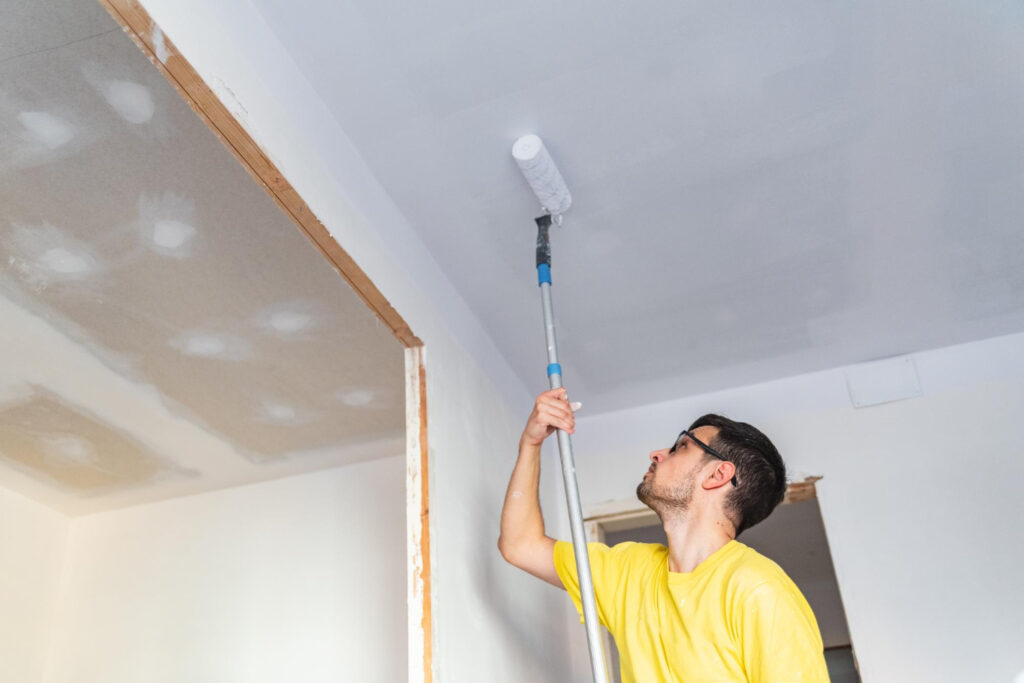
The ceiling represents one-sixth of the space in a room but often gets less attention when it comes to painting. Painting the ceiling a light color can raise the perceived height of the room. White is a popular choice as it reflects light well, enhancing the airy feel of a room. For a subtle, stylish effect, try a shade slightly lighter than the walls. This draws the eye upwards and makes the ceilings appear higher, contributing to a feeling of a more expansive space.
Use Glossy Finishes
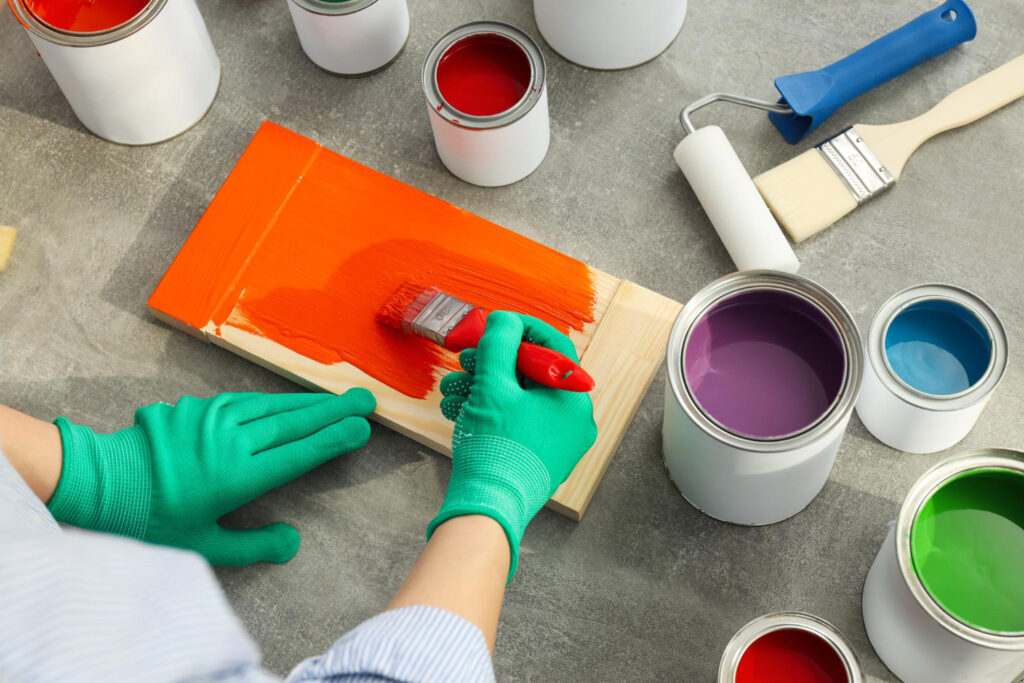
Glossy finishes can help make a small room look bigger by reflecting light. Consider using a semi-gloss or gloss finish on walls to add a visual depth. This reflection not only makes the room appear brighter but also creates a more dynamic visual space. However, it’s important to ensure your walls are in good condition as glossy finishes can highlight imperfections.
Read More: How to Make a Small Bathroom Look Bigger: 8 Clever Tricks You Must Know!
Extend Wall Color to Molding
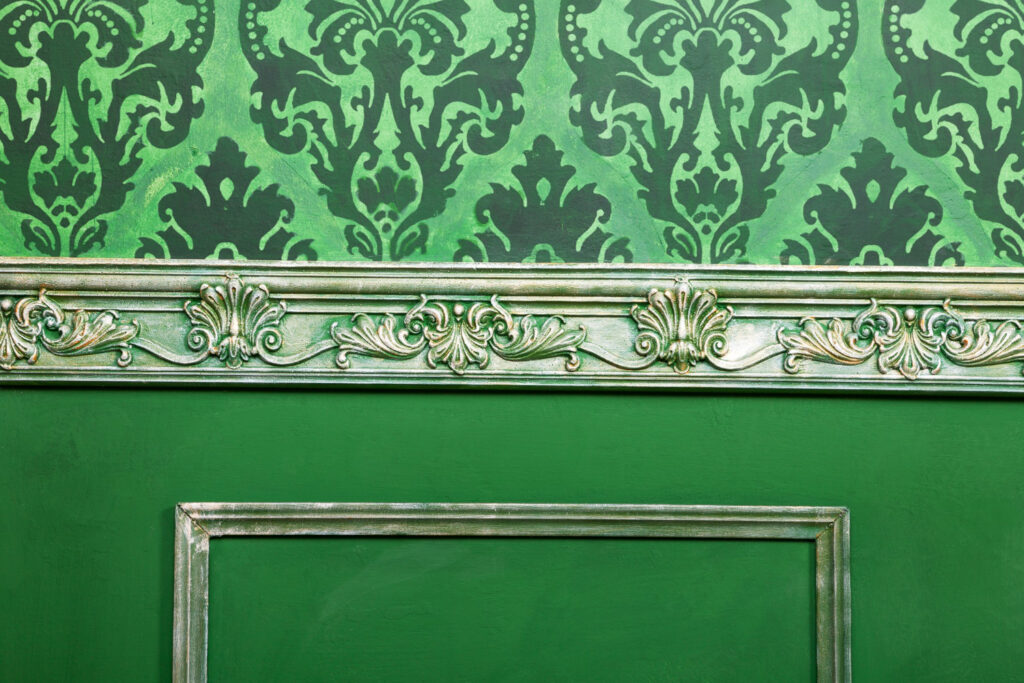
Blending the wall color into the molding and trim can expand a room visually. By painting the trim and walls the same color, you eliminate visual boundaries that typically define a space. If you prefer some contrast, consider using a slightly lighter or darker shade for the trim compared to the walls. This subtle distinction can still help in making the space feel larger than it is.
Create a Focal Wall with a Different Color
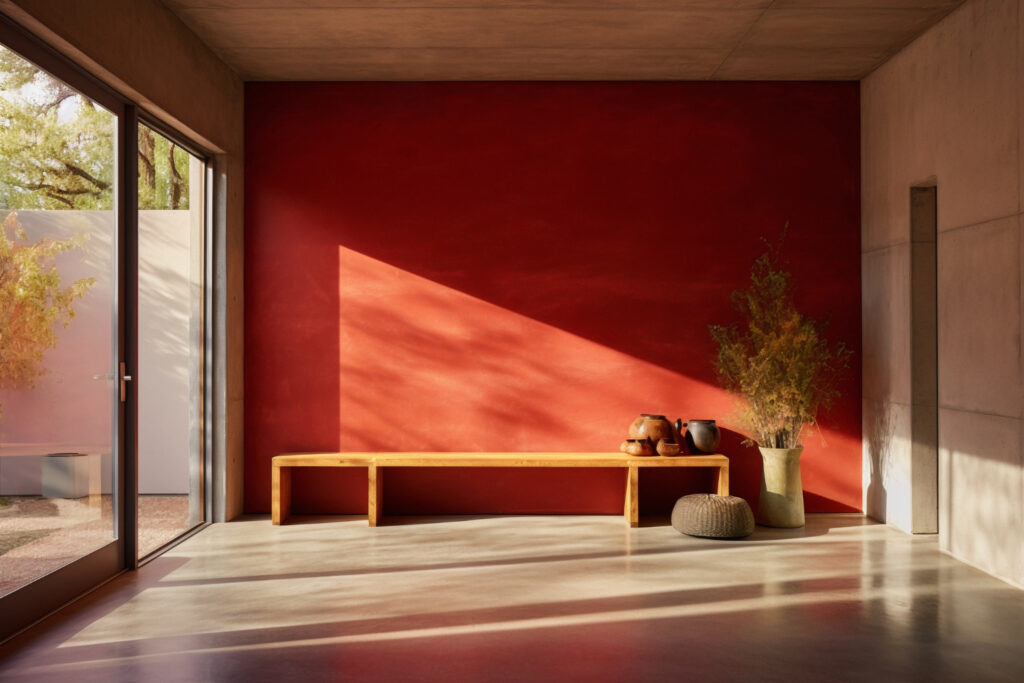
Creating a focal wall with a contrasting color can draw attention to a single area, making the rest of the room feel larger. Choose a wall to paint with an accent color that complements the other walls. This technique draws the eye toward the focal wall, giving the illusion of depth. Darker colors work well for this if balanced by lighter tones on other walls.
Horizontal or Vertical Stripes
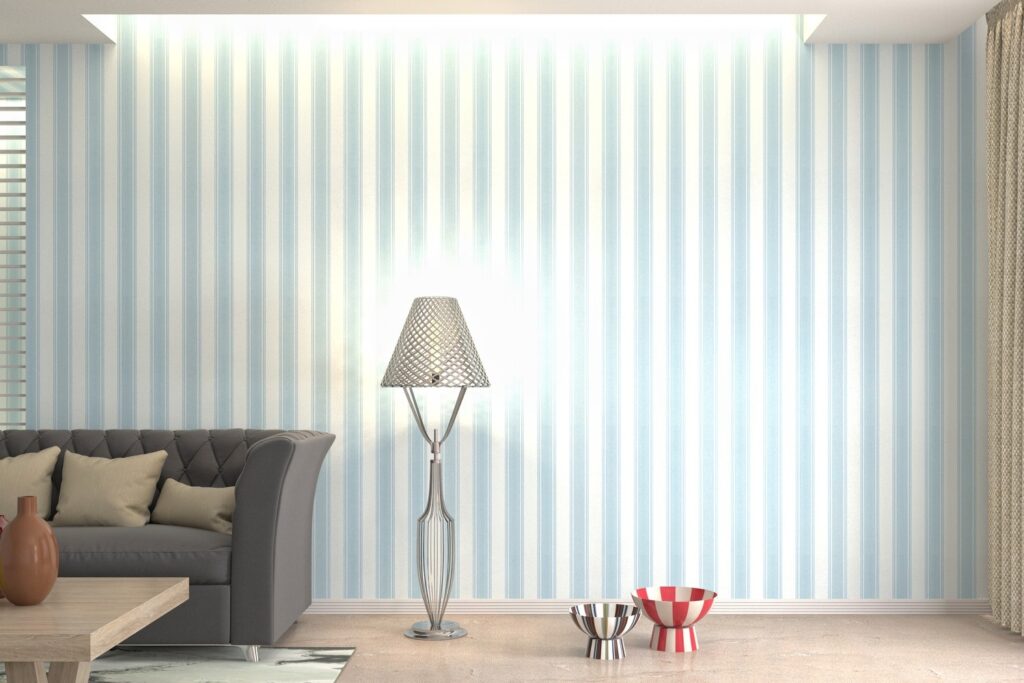
Painting stripes on your walls can dramatically alter the perception of space within a room. Vertical stripes make a room appear taller, which is perfect for rooms with low ceilings. Horizontal stripes, on the other hand, can make a room appear broader. These stripes can be bold or subtle, depending on the look you’re going for, but they always add a dynamic character to the room while enhancing spatial perception.
Paint an Ombré Effect
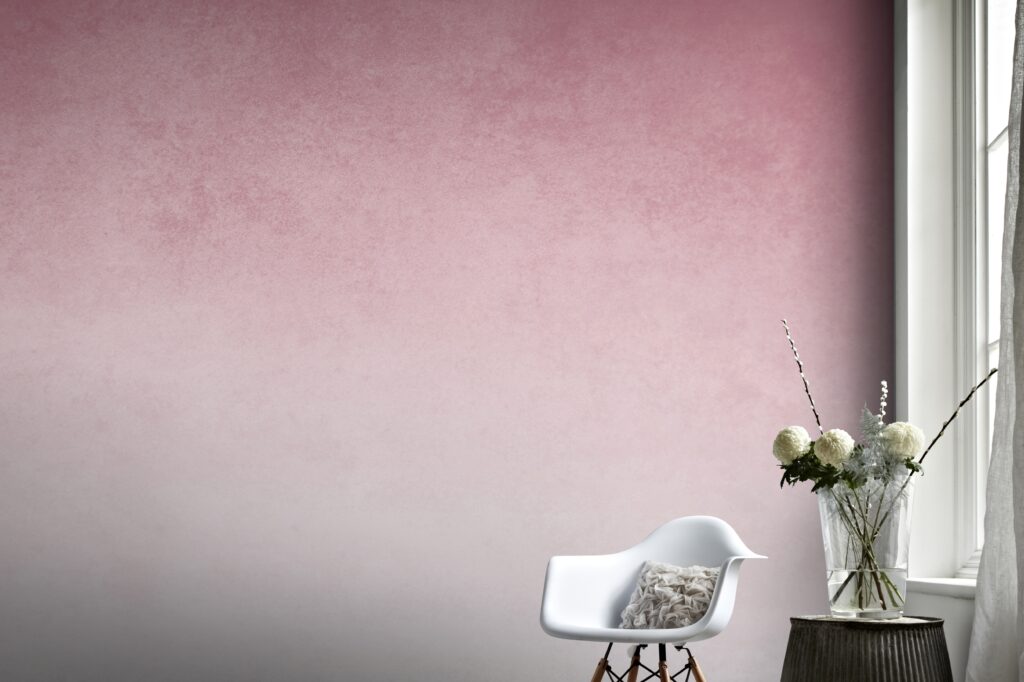
The ombré effect, where color gradually fades from dark to light, can make a room seem larger. Start with a darker color at the bottom and gradually blend to a lighter shade at the top. This effect adds an element of depth and openness to the space, drawing the eye upward and making the ceilings appear higher.
Use Monochromatic Color Schemes
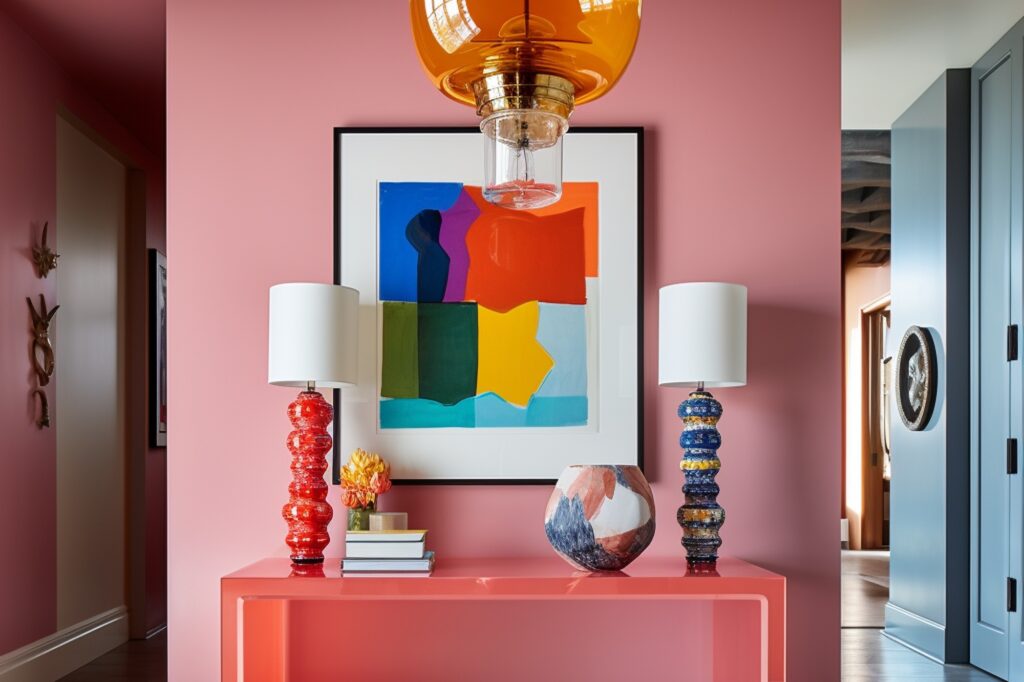
A monochromatic color scheme involves using different shades and tints of a single color throughout a room. This technique creates a seamless look that can visually expand the space. Using varying shades of the same color for walls, curtains, rugs, and furniture creates a cohesive environment that feels open and uncluttered.
Read More: How to Make a Small Room Look Bigger with 6 Best Tricks
Reflective Metallic Paint Accents
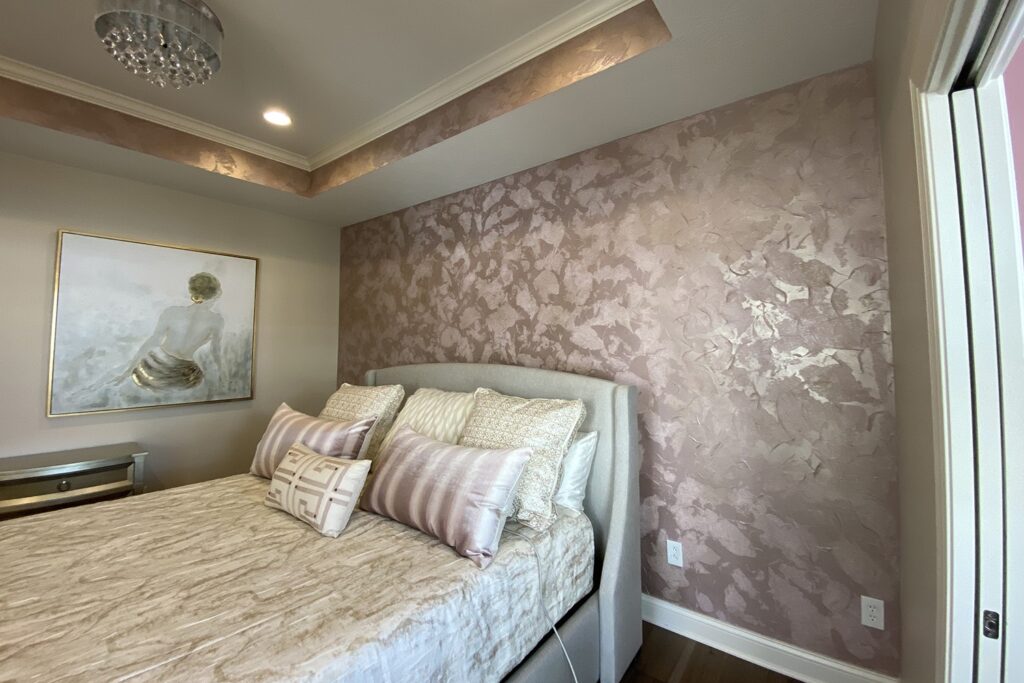
Adding accents with reflective metallic paints can bring light and depth to a room. Use metallic paints sparingly on areas like trim, moldings, or even one segment of a wall. These reflective properties mimic the effect of mirrors and can make a small room look larger by bouncing light around the space.
Consistency Across Adjacent Spaces
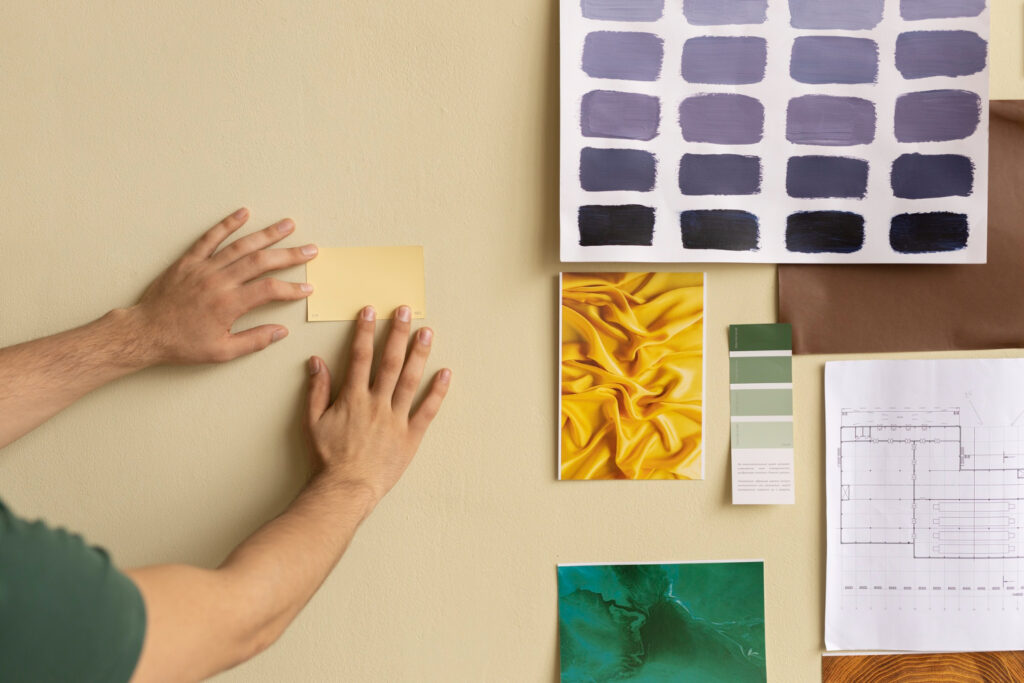
If possible, maintain a consistent color palette across adjacent rooms visible from the space you are painting. This consistency helps blur the boundaries between rooms, creating a sense of a larger, continuous space rather than chopped up, smaller areas.
Conclusion
Paint is a powerful tool in interior design, capable of transforming cramped spaces into open, inviting areas. By implementing these strategic painting techniques, you can visually expand your room without the need for structural changes.
Light colors, reflective finishes, and thoughtful use of accents can all contribute to the perception of more space, making your home feel larger and more welcoming. Whether you’re preparing to sell your home or simply looking to enhance your living environment, these painting tips can make a significant difference.
FAQ – How to Make a Room Look Bigger with Paint
What colors make a room look bigger and more open?
Light and neutral colors such as white, light gray, beige, and pastels are best for making a room look bigger. These colors reflect more light, which enhances the room’s openness and airiness.
Can the finish of the paint affect how big a room looks?
Yes, the finish of the paint can significantly impact the perception of space in a room. Glossy finishes reflect light, which can make a small room appear larger and more open. However, they might highlight wall imperfections, so it’s important to prepare surfaces well.
How does painting the ceiling affect the perceived size of a room?
Painting the ceiling a light color, especially white, can make it appear higher, thus giving the illusion of a more spacious room. You can also use a lighter shade than the walls to enhance this effect subtly.
What is the impact of painting moldings and trim the same color as the walls?
Painting moldings and trim the same color as the walls can visually expand a room by blurring the boundaries that typically define the space. If you prefer a bit of contrast, using a slightly lighter or darker shade for the trim is also effective.
How can creating a focal wall help make the rest of the room look bigger?
A focal wall painted in a contrasting color draws the eye towards it, creating a sense of depth that makes the rest of the room feel larger. This technique is effective when used on a wall where you want to attract attention or create an impact.
